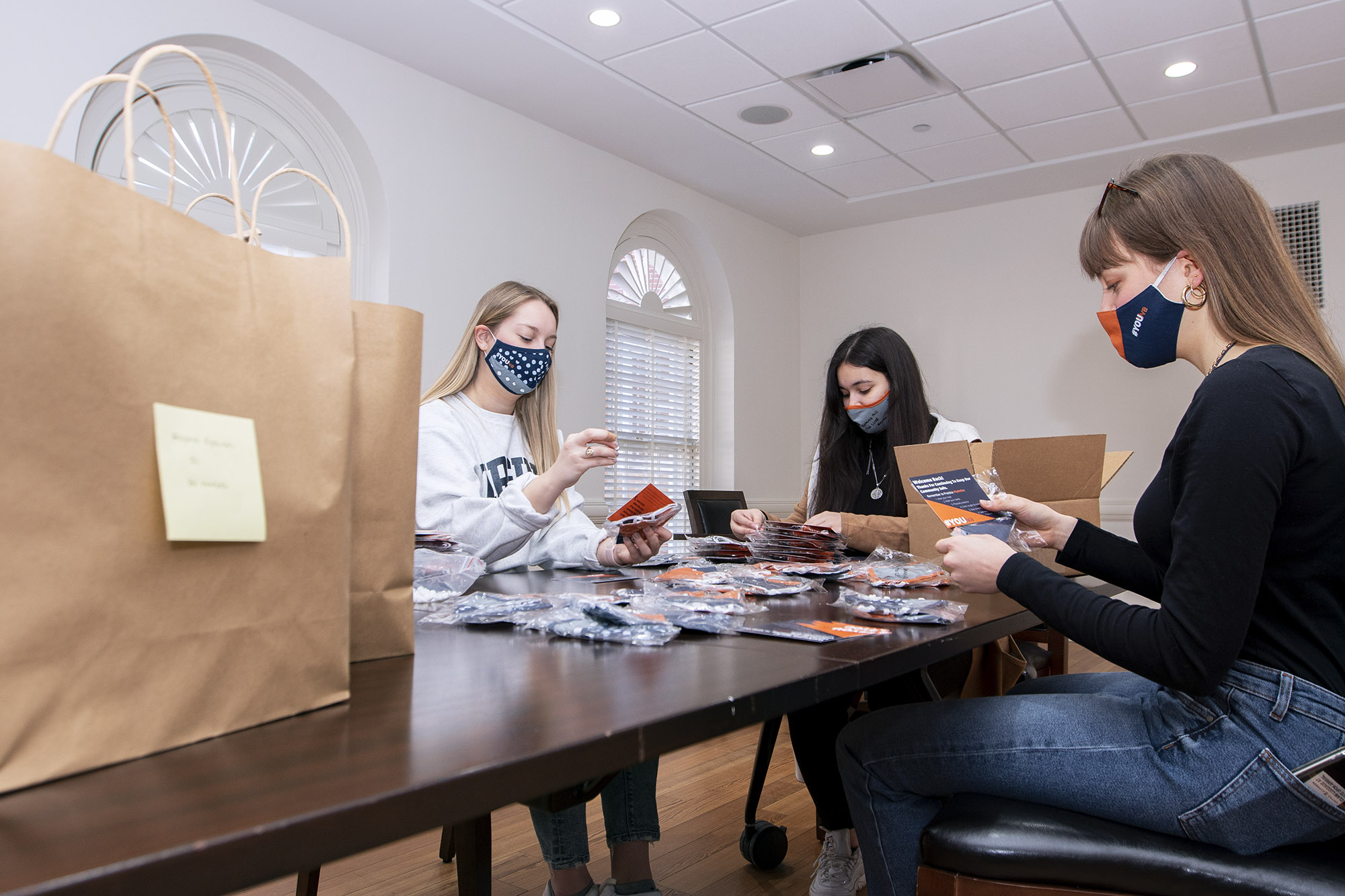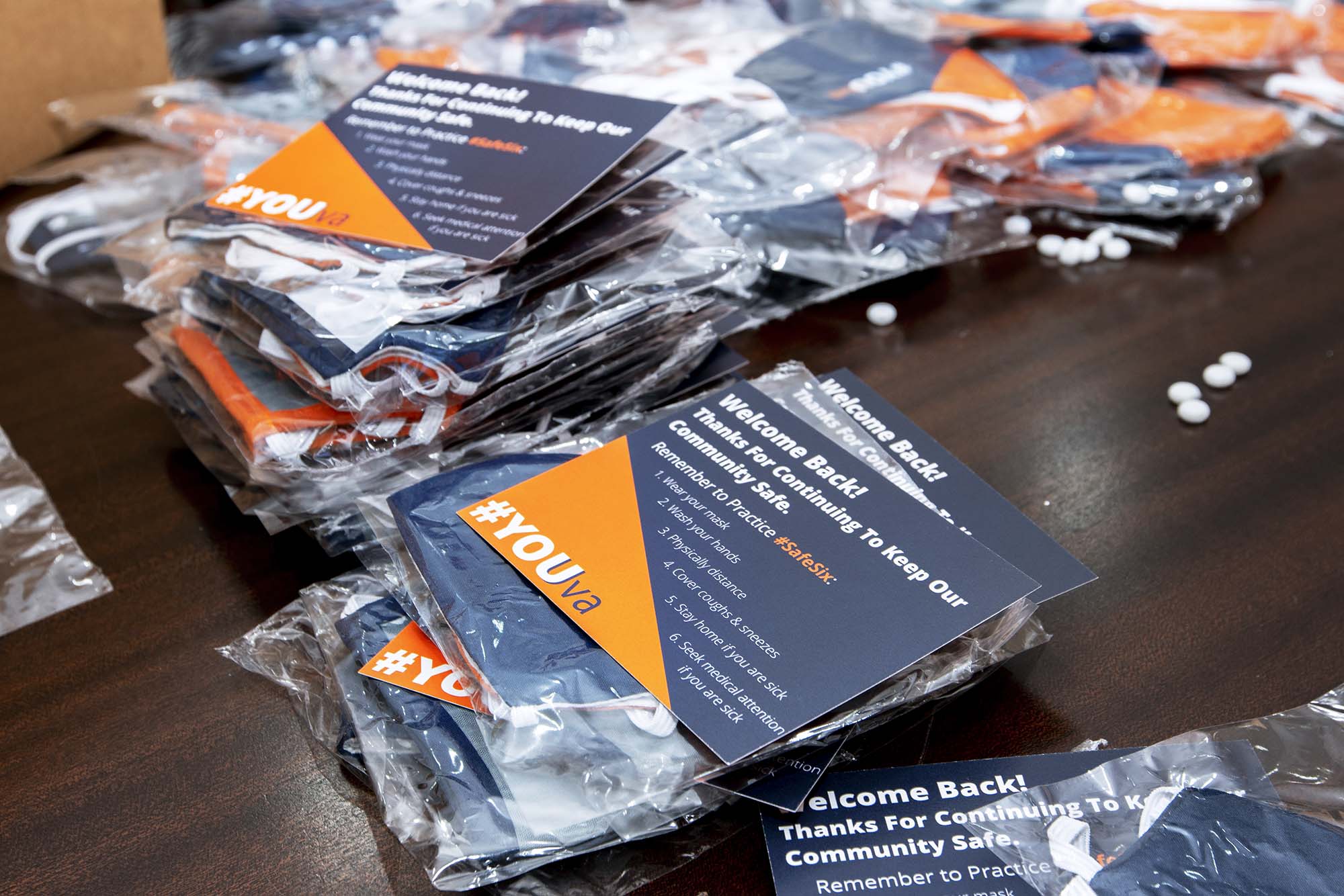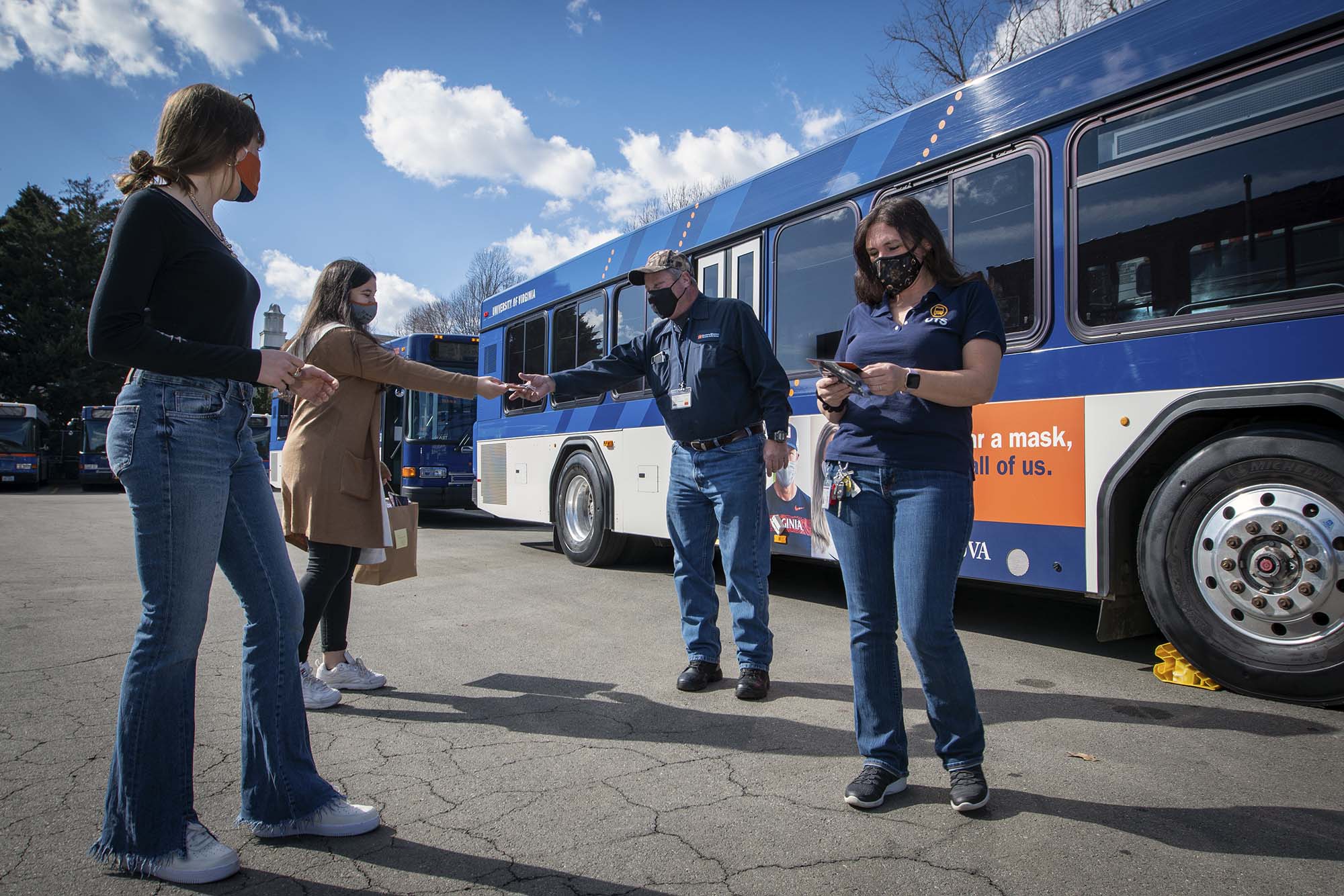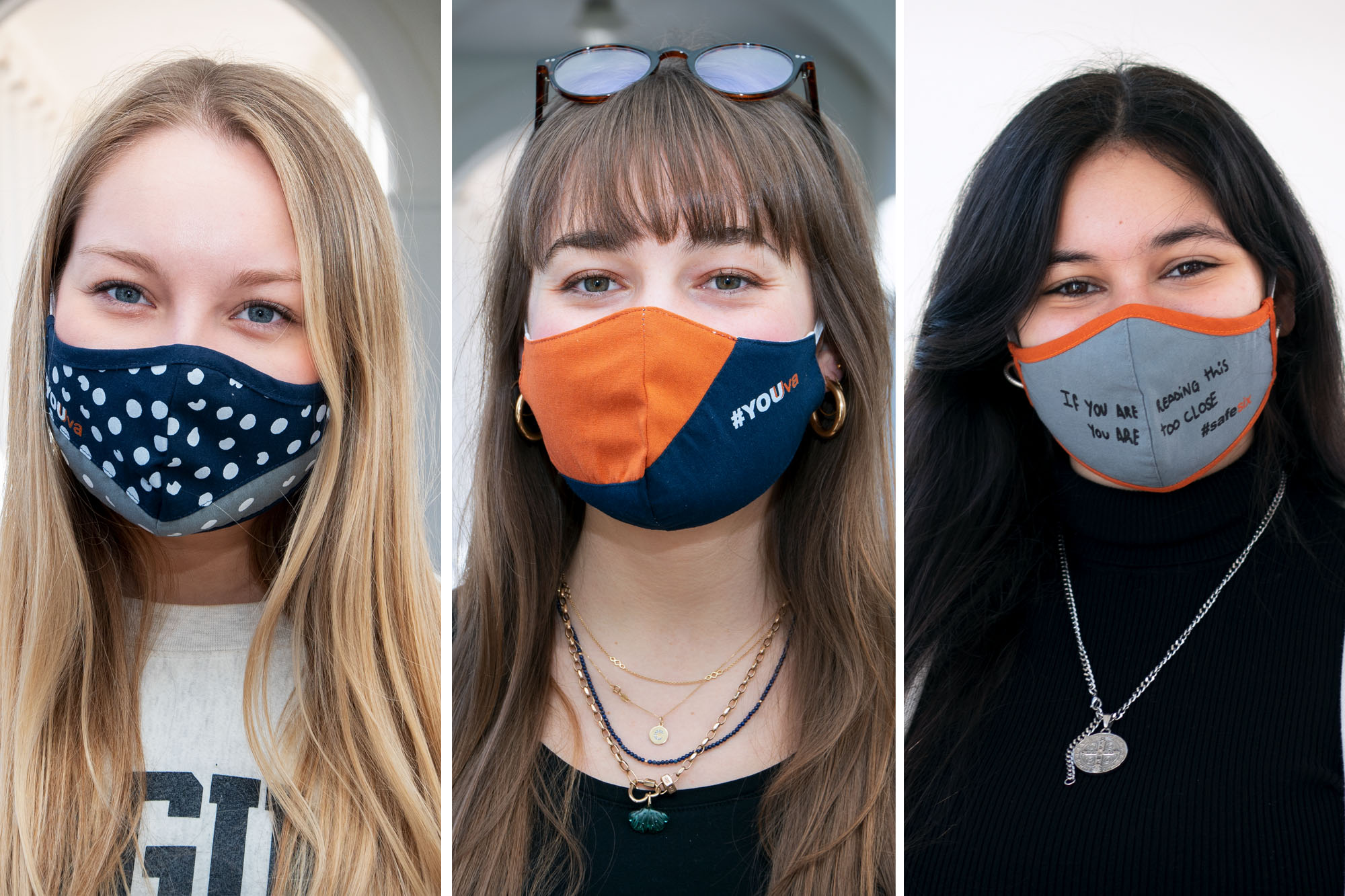A year has passed since the COVID-19 pandemic changed life at the University of Virginia. Many plans were altered, and many new plans were quickly put into action.
During the summer of 2020, students affiliated with UVA’s Meriwether Lewis Fellows program, which trains an annual cohort of 25 UVA students in leadership skills, pitched in with ideas to address their new reality. A group of students in the Meriwether Lewis Summer Institute and other student leaders focused their efforts on how to return safely to Grounds in the fall. They devised a new student-to-student message campaign with the hashtag “#YOUva,” designed to urge everyone to take seriously their personal responsibility to stay safe while also enjoying the fall on Grounds. A video, “Safely Returning to Grounds: A Guide for Students, By Students,” is one of the projects that resulted from that work.
Now, with spring on the way, vaccines being administered and an end to the pandemic in sight, the danger comes from a sense of complacency and understandable weariness toward restrictions. February’s outbreak of COVID-19 cases at the University illustrates the risks of just such a scenario and the need for public health measures to continue with a renewed commitment by the University community.

But third-year students Charlotte Paulussen and Mica Vilanova and fourth-year Kristin Myers have a plan for that. As an outgrowth of an idea they had at the summer institute, these students took the lead in producing and distributing thousands of masks to students, faculty and staff across Grounds. And thanks to a gift from Darden alumna Louise Parzick and a partnership with Nest, a nonprofit dedicated to improving women’s well-being and economic independence, and a group of female artisans in Guatemala who manufactured the masks, their #YOUva mask campaign is now in full swing.
“The #YOUva concept and the proposals within it were a combination of all of the ideas that were proposed by the different groups within the Meriwether Lewis Institute,” Paulussen said. “It’s a joint effort. There’s the broader #YOUva group, and then there is our smaller group that chose to work on the Nest masks. And then it just continues developing into all of these different avenues that it’s taken now.”
Darden alumna Parzick, who serves as a Nest board member, has been working with Paulussen, Vilanova, and Myers to come up with an all-inclusive plan to put their idea into action, from concept to production to distribution. Parzick made a gift to UVA to underwrite the cost of the masks and the UVA team of undergraduates worked with Nest to secure the purchase order.

Since returning to Grounds this winter, Paulussen, Vilanova and Myers have been hard at work assembling the initial order of 5,000 masks and preparing them for distribution.
Parzick explained that the Nest model is centered on empowering women.
“There are a lot of women artisans around the world who work from home; they don’t work in a factory setting,” she said. “This often makes them more vulnerable. There are fewer laws that govern at-home workers. So, they’re what we call ‘the invisible workforce.’ Nest is really all about helping to educate and advocate for these women as they build a new handmade economy.”
Nest also serves as an honest broker between workers and brands such as West Elm and Pottery Barn that want to locate ethically sourced, artisan-made products. “It’s about supply-chain transparency,” Parzick said. “We provide a consumer seal of ethical handcraft – an assurance, much like a fair-trade seal, that the products were made by artisans whose health, safety and wellbeing were assured. We make sure that they’re all being taken care of, properly treated, paid a good wage. We help educate them and provide online services. But we also connect them with broader markets, often through our brand and retail partners. And it’s really broadened their ability to produce and thereby improved their economic and social standing.”

Inside of each mask is a screen-printed QR code directing the wearer to the #YOUva website, which contains more information about #YOUva, Nest and the small business that created the masks.
Amanda Lee, Nest’s director of brand strategy and sourcing, notes that Nest works with more than 1,000 artisans in 115 countries, many of whom are women empowering their families and communities through their handmade work. “La Casa Cotzal, the artisan business that supported UVA’s mask production, worked with a group of around 30 artisans based in San Pedro Sacatepéquez, Guatemala – over half of whom are women,” she said.
“Creating these masks was particularly meaningful to these artisans and their community, as San Pedro Sacatepéquez is a town that is traditionally full of craftspeople, who practice carpentry, wood working and masonry, and of course, sewing. However, with very little new construction and building, as well as lack of tourism due to COVID-19, the artisans in this community relied heavily on this order and the seamstresses to continue bringing income to the local economy and to their families.”
Parzick knew that teaming up with the students behind the #YOUVa brand was the perfect fit. “We thought, wow, it’s a win-win because it’s women supporting women,” she said. “It was me as a woman supporting this group of women at UVA, supporting these women artisans in Guatemala. Basically, women supporting economic self-sufficiency.
“In a time where the pandemic was bringing everybody down and there was nothing positive about it, what happens if we turn this into something positive?” Parzick continued. “These students are learning lessons that go far beyond the classroom. Lessons in social entrepreneurship. Lessons in philanthropy. These are lessons in really making a difference.”
“It’s a really cool opportunity to partner with international artisans and to further spread the message in a way that’s really beneficial,” Paulussen said. “Everybody needs masks. We were able to talk to Louise about what she had in mind, then speak with Nest, who helped us to choose artisans in Guatemala who we would like to work with. After we designed the masks, we’re now working on distribution strategies. It kept progressing and developing and growing larger and larger until it turned into what it is now.”
Lee said that Nest, as an organization, thrives on a collaborative project such as this one. “Nest worked closely with UVA’s student-led initiative, through Zoom calls and many emails,” she said, adding that the students were a pleasure to work with. “We first presented to them the Masks by Makers project, its impact on global artisan communities, and asked the team what would be most important to them in terms of product needs, social impact goals and focal geographies. They were open to ideas and suggestions, which made the project very collaborative, effective and fun.”

Students Charlotte Paulussen and Mica Vilanova distributed masks to University Transit System bus drivers Lorelei Miano and James Brian Newman.
Since returning to Grounds, Paulussen, Vilanova and Myers have been hard at work assembling the initial order of 5,000 masks and preparing them for distribution. Inside of each mask is a screen-printed QR code directing the wearer to the #YOUva website, which contains more information about #YOUva, Nest and the small business that created the masks. They have so far distributed masks to the Greek system, University Transit System bus drivers, Facilities Management, and UVA faculty members. More groups will follow as the semester progresses.
“They took the ball and they ran with it,” Parzick said. “This was a lesson in everything from design, to production, to procurement and delivery, to rollout, and creating a whole strategy like running a small business. That’s what I love about it. I’m hoping that at the end of the day what we’ve done is, we’ve inspired three new entrepreneurs in the world. That they could actually start with a great idea and run with it.”
Media Contact
Article Information
March 17, 2021
/content/students-team-alumna-distribute-masks-across-grounds

